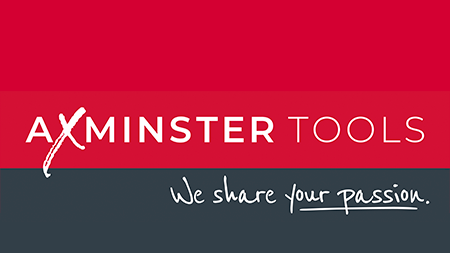Equality, Diversity and Inclusion: Axminster Tools
15th November, 2023
A case study on using the GBC EDI commitments to begin and inform our EDI journey
By: Jane Boulton, Human Resources Director
Axminster Tools is UK based and distributes tools and machinery (mail order and retail) to trade and individuals in the UK, Ireland and Europe, employing 217 people. Axminster Tools became GBC accredited in July 2021.
Introduction
This case study will demonstrate how we as a business evolved our commitment to EDI. At the start of our journey, like most businesses, we had our policies that incorporated EDI, however, by analysing this GBC component further we were able to address each area, assessing where we were and what we had to do to improve.
The objectives set were to:
- Train our Leadership Team to confidently address EDI within teams.
- Undertake Equality Impact Assessments for every project, to consider equality implications on different groups.
- Provide EDI Champions with the same training as the Leadership Team and set annual objectives.
- Introduce annual Inclusive Surveys.
- Include EDI in Performance Reviews, to ask if staff felt listened to and valued.
- Create work hubs and committees, to ensure inclusivity, and encourage staff to join.
- Introduce mandatory EDI sessions through our online training portal for all staff.
How was change achieved?
We worked with Equality & Diversity UK to train our Leadership Team and the EDI Champions. This resulted in a huge change in confidence, behaviour and attitude around subjects such as inclusivity, equality and understanding diversity, changing many of our policies and procedures; we wanted to be more transparent and encourage ownership.
The Equality Impact Assessments have really changed the way that we think about the introduction of new projects, to support everyone involved. A great example of this is when we changed over from Google to Microsoft and created a training programme. The EIA helped us to identify different types of learning we needed to provide, which in turn, allowed a successful transition.
Following on from the training for our EDI Champions we were able to set them objectives, all of which they met last year. We introduced an annual Inclusive Survey with the support of the Champions, which helps to create new objectives for them and allows our employees to have a voice. We also took this opportunity to collate our diversity, gender, ethnicity and disability data. East Devon is made up of 97.4% of white people; our workforce is made up of 97.6% of white people. So, one example of measures implemented, is that the Champions decided to introduce culture days, religious festival activities and storytelling. They have also created a dedicated EDI intranet page and minute all meetings for staff to view.
When we introduced EDI Champions, we looked at our recruitment processes, as we wanted to focus on diversity and attracting candidates from different backgrounds. We introduced blind recruitment and looked at our application process. We introduced the interview questions before the interview, including questions around EDI to understand candidates’ attitudes and outlook.
We also improved our onboarding portal, so new employees have all the information about the company and their employment before they join the company. They are given a work buddy to help them through their probationary period, talking them through our business, the company culture and supporting them in their job roles. All these initiatives enhanced our wish for all staff to feel included.
We added the question “do you feel valued” to our performance reviews. This provided another way for people to have a voice and feedback their concerns or ideas.
The creation of hubs and committees continues. We did find the same employees coming forward, so to support more diversity, we asked our committee leads to personally invite non-members to attend a meeting. They then discussed how they thought the meeting went and if they had any suggestions. So far this year, we have had a non-member visit all committee meetings and evidence shows it has helped put people at ease and feel more comfortable attending, who wouldn’t necessarily put themselves forward.
Making the EDI online training mandatory also supported the work we wanted to achieve through the EDI component of the GBC.
How has change affected the organisation?
EDI is now embedded within our business. Our improvements on EDI are reported twice yearly through the Organisational Board Report; we also publish a “How are we doing” report to our staff explaining what we and the Champions have achieved and what we still need to work on.
We strive for a sustainable future and to attract, retain and invest in the best people, to deliver the best results for our customers and the business. We wanted every staff member to be able to feel that they could be listened to and that they could contribute to the business no matter how small or large their idea or thoughts were. Feedback from our performance reviews and Inclusive Surveys show great improvements in these areas.
For example, following adding ‘do you feel valued’ to performance reviews, managers reported understanding their teams better and greater employee engagement.
As a result of implementing EDI training, employees reported a greater understanding of EDI, feeling more able to air their points of view and more at ease discussing topics.
We remain focused on EDI as a company, as we want all staff who work for us to experience a fair and equal environment, in which to thrive and progress.
Top tips
- Ask yourselves what you want to change as a business.
- Use the GBC components and benchmark, where you are now and where you want to be.
- Talk through your ideas with other people; don’t be defensive and listen.
As our MD Alan Styles says, “we all strive to do amazing work, but if we include everyone and collaborate as well as listen, we will be able to achieve far more”.

